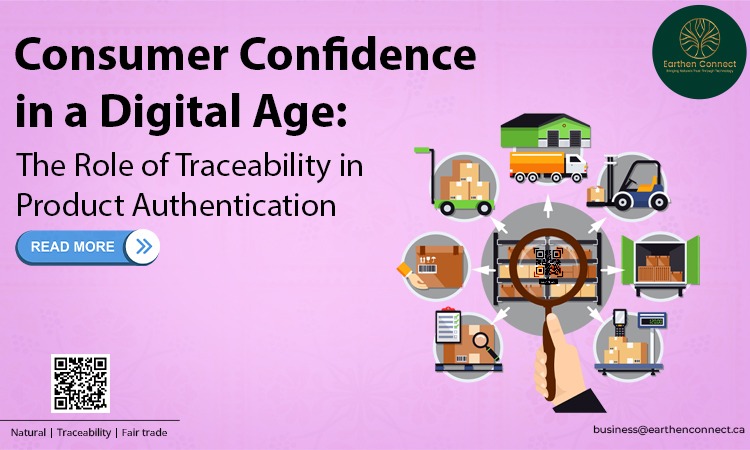The digital system has made customers powerful and knowledgeable. They get innumerable information about goods, companies and brands by tapping a few buttons of smartphones. But with this unparalleled access also comes worry about the openness and genuineness of the products. Customers seek assurances that the goods they buy are authentic, secure, and sourced responsibly. Here’s where traceability comes into play.
Understanding Consumer Confidence
Customer trust is the foundation of any successful company. Customers are more inclined to repurchase and refer others to a brand or product when they believe in it. However, worries about phoney products, immoral behaviour, or safety hazards can quickly undermine this faith. In the digital era, where information spreads quickly, a single incident has the potential to damage a brand’s reputation.
The Importance of Being Traceable
“Traceability” is tracing a product from the point of origin to the customer’s hands. Every stage of the supply chain, from acquiring raw materials to manufacturing, distribution, and retail, is documented. Strong traceability systems allow businesses to give customers insight into the lifecycle of their products.
Building Trust Through Authentication
The capacity of traceability to authentic food products is one of its main advantages. Employing technology like blockchain, QR codes, and RFID tags, businesses provide unchangeable documentation confirming the legitimacy of every item. Customers can obtain comprehensive details on the product’s origins, ingredients, and manufacturing process using their smartphones to scan these codes. This degree of openness serves to both reassure customers and impede the spread of fake goods, such as food products.
Ensuring Safety and Compliance
Authenticity is only one aspect of traceability; other factors include compliance and safety. Through tracking the provenance of raw materials and closely observing the production procedures, businesses can guarantee that their goods fulfil rigorous quality and safety requirements. It is especially crucial in industries where customer health and welfare are top priorities.
Encouraging Moral Consumption
Apart from ensuring safety and authenticity, traceability also enables customers to make more moral purchase decisions. Businesses may demonstrate their dedication to sustainability, ethical labour standards, and environmental responsibility by giving transparency into their sourcing procedures and supply chain management. Customers who value ethics will find this transparency appealing.
Conclusion
Consumer confidence is a valuable resource and a major issue for businesses in times of digital connectedness and information. Businesses may promote trust, accountability, and transparency throughout the supply chain by making traceability a fundamental component of their operations. It promotes sustainability and long-term success in a cutthroat industry and boosts consumer confidence. Earthen Connect, a leading aggrotech company in Pune, offers authentic food products grown using sustainable agricultural practices. To assure customers of the authenticity of food products, we provide food traceability and transparency. Our product range includes spices, honey, rice and seeds. Each product package contains a QR code. On scanning this QR code, customers can get complete information about the product from its origin.

